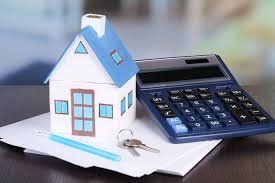Estimating your home’s value using recent sales data, also known as comparable sales or “comps,” is an effective way to get a realistic idea of what your property might be worth in the current market. Here’s a step-by-step guide on how to use recent sales data to estimate your home’s value, if you have searching online for “value my property”.
1. Gather Relevant Information
Identify Comparable Properties
To start, you’ll need to identify properties that are similar to yours in several key aspects:
- Location: The comps should be in the same neighbourhood or a similar area.
- Property Type: Look for homes that are similar in type (e.g., detached, semi-detached, terraced).
- Size: Consider the square footage and number of bedrooms and bathrooms.
- Age and Condition: Properties of similar age and condition will provide the most accurate comparisons.
- Lot Size: The size of the lot or garden should be similar to yours.
Sources for Sales Data
- Online Property Portals: Websites like Rightmove, Zoopla, and OnTheMarket list recent property sales.
- Local Estate Agents: Estate agents can provide detailed information on recent sales in your area.
- Public Records: Local government websites often have public records of recent property sales.
2. Analyse the Comparable Sales
Adjust for Differences
Once you have a list of comparable properties, adjust for any differences between the comps and your property. Consider factors such as:
- Renovations: If your home has been recently renovated or has upgrades, it may be worth more.
- Condition: Adjust for the condition of the properties. A well-maintained home will have a higher value than one in need of repairs.
- Features: Features such as a garage, swimming pool, or extra living space can add value.
- Location Specifics: Even within the same neighbourhood, proximity to schools, parks, or public transport can affect value.
Calculate Price Per Square Foot
To get a more precise comparison, calculate the price per square foot (or square metre) for each comparable property.
- Formula: Sale Price ÷ Square Footage = Price Per Square Foot
- Average Price: Calculate the average price per square foot from your list of comps.
- Estimate: Multiply the average price per square foot by your home’s square footage to get an estimate.
3. Consider Market Trends
Current Market Conditions
Market trends can significantly impact property values. Understanding whether the market is currently favouring buyers or sellers can help you estimate your home’s value more accurately.
- Rising Market: In a rising market, recent sales might quickly become outdated. Adjust your estimates upwards.
- Declining Market: In a declining market, prices may be falling, so adjust your estimates downwards.
Time on Market
- Quick Sales: Properties that sold quickly often did so because they were priced competitively. This can indicate a strong demand.
- Longer Sales: Homes that took longer to sell might have been overpriced or in less demand.
4. Use Online Valuation Tools
Automated Valuation Models (AVMs)
Online AVMs can provide a quick estimate of your home’s value using recent sales data and market trends. While these tools are convenient, they should not be solely relied upon as they may not account for unique features of your home or precise local conditions.
- Examples: Rightmove, Zoopla, and estate agent websites often have AVM tools.
- Verification: Use AVM results as a starting point and cross-verify with manual analysis and professional appraisals.
5. Consult with Real Estate Professionals
Estate Agents
Local estate agents have in-depth knowledge of the market and can provide a more nuanced estimate of your home’s value based on recent sales.
- Market Appraisal: Request a market appraisal from a few different estate agents to compare their estimates.
- Professional Insight: Agents can offer insights into buyer preferences and market dynamics that may not be evident from sales data alone.
Professional Appraisers
For the most accurate estimate, consider hiring a professional appraiser who will conduct a thorough analysis of your property and comparable sales.
- Detailed Report: An appraiser provides a detailed report that considers multiple factors affecting value.
- Objective Assessment: Professional appraisers offer an unbiased valuation.
6. Regularly Update Your Estimates
Market Fluctuations
Real estate markets change rapidly at times. Keeping your estimates current provides you with the most up-to-date understanding of what your house or condo is worth.
- Seasonal Changes: Be aware of seasonal changes in the market that could impact values.
- Economic Factors: Monitoring of general economic indicators, including interest rates and employment trends that impact prospects for the housing market.
Conclusion
This is the process whereby relevant comparables are gathered, differences adjusted for, trends in the market taken into account, and experts/professionals consulted to project your home’s value against the recent sales data. With all this, you can then come up with a plausible estimate of the value of your house, helping in making an informed decision if selling, refinancing, or just fathoming at the worth of your property is involved.


